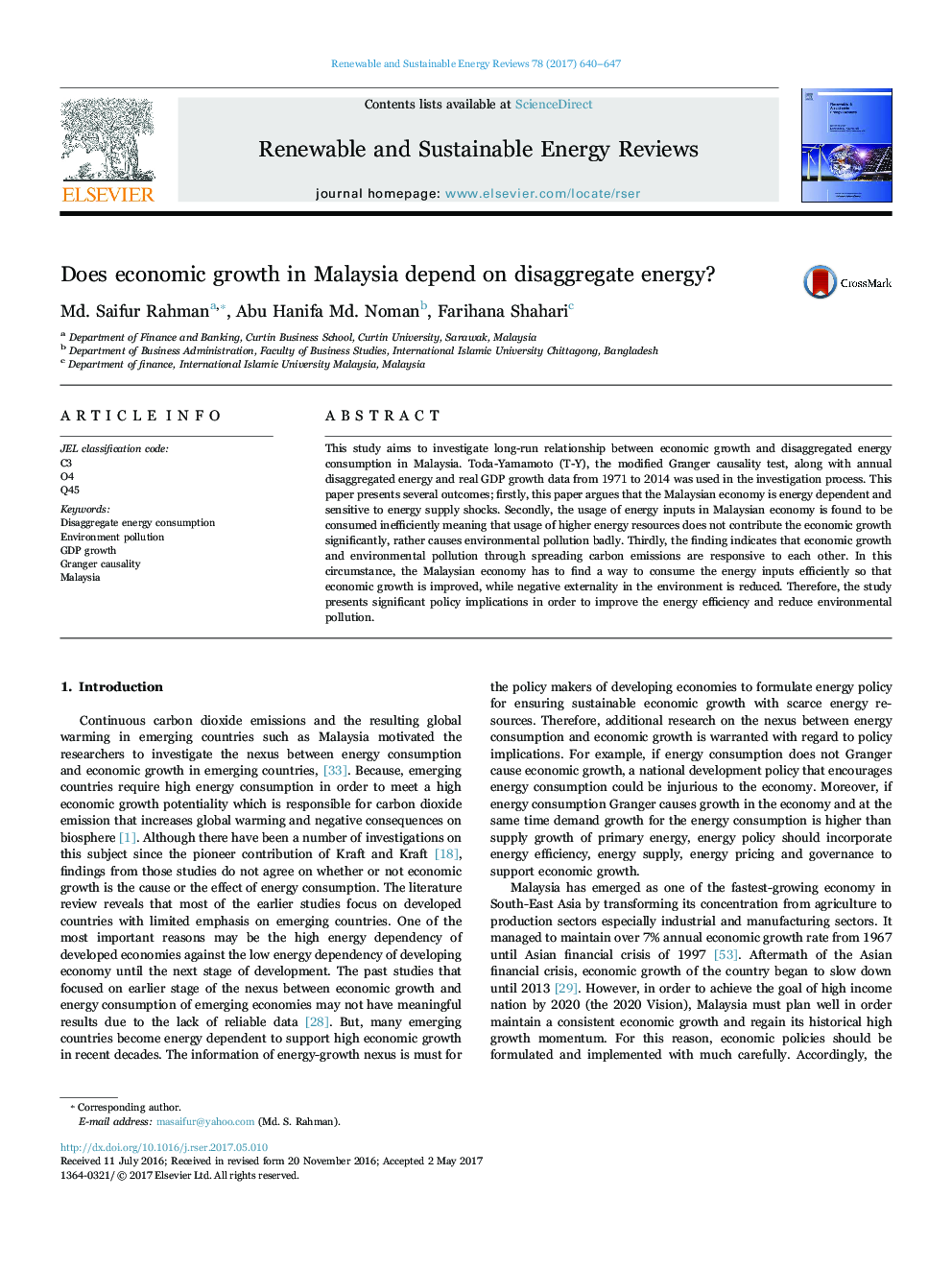| Article ID | Journal | Published Year | Pages | File Type |
|---|---|---|---|---|
| 5482491 | Renewable and Sustainable Energy Reviews | 2017 | 8 Pages |
Abstract
This study aims to investigate long-run relationship between economic growth and disaggregated energy consumption in Malaysia. Toda-Yamamoto (T-Y), the modified Granger causality test, along with annual disaggregated energy and real GDP growth data from 1971 to 2014 was used in the investigation process. This paper presents several outcomes; firstly, this paper argues that the Malaysian economy is energy dependent and sensitive to energy supply shocks. Secondly, the usage of energy inputs in Malaysian economy is found to be consumed inefficiently meaning that usage of higher energy resources does not contribute the economic growth significantly, rather causes environmental pollution badly. Thirdly, the finding indicates that economic growth and environmental pollution through spreading carbon emissions are responsive to each other. In this circumstance, the Malaysian economy has to find a way to consume the energy inputs efficiently so that economic growth is improved, while negative externality in the environment is reduced. Therefore, the study presents significant policy implications in order to improve the energy efficiency and reduce environmental pollution.
Related Topics
Physical Sciences and Engineering
Energy
Renewable Energy, Sustainability and the Environment
Authors
Md. Saifur Rahman, Abu Hanifa Md. Noman, Farihana Shahari,
